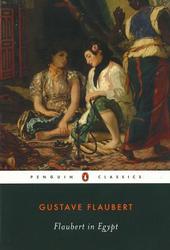
|
Flaubert in Egypt: A Sensibility on Tour
Paperback / softback
Main Details
| Title |
Flaubert in Egypt: A Sensibility on Tour
|
| Authors and Contributors |
By (author) Gustave Flaubert
|
|
Introduction by Francis Steegmuller
|
| Physical Properties |
| Format:Paperback / softback | | Pages:240 | | Dimensions(mm): Height 195,Width 120 |
|
| Category/Genre | Literary essays
Classic travel writing |
|---|
| ISBN/Barcode |
9780140435825
|
| Classifications | Dewey:916.2043 |
|---|
| Audience | |
|---|
|
Publishing Details |
| Publisher |
Penguin Books Ltd
|
| Imprint |
Penguin Classics
|
| Publication Date |
27 June 1996 |
| Publication Country |
United Kingdom
|
Description
Flaubert's unforgettable memoirs of travels abroad At once a classic of travel literature and a penetrating portrait of a "sensibility on tour," Flaubert in Egypt wonderfully captures the young writer's impressions during his 1849 voyages. Using diaries, letters, travel notes, and the evidence of Flaubert's traveling companion, Maxime Du Camp, Francis Steegmuller reconstructs his journey through the bazaars and brothels of Cairo and down the Nile to the Red Sea. For more than seventy years, Penguin has been the leading publisher of classic literature in the English-speaking world. With more than 1,700 titles, Penguin Classics represents a global bookshelf of the best works throughout history and across genres and disciplines. Readers trust the series to provide authoritative texts enhanced by introductions and notes by distinguished scholars and contemporary authors, as well as up-to-date translations by award-winning translators.
Author Biography
Gustave Flaubert was born in Rouen in 1821, the son of a prominent physician. The success of Madame Bovary (1857) was ensured by government prosecution for "immorality"; Salammb (1862) and The Sentimental Education (1869) received a cool public reception; not until the publication of Three Tales (1877) was his genius popularly acknowledged. His final bitterness and disillusion were vividly evidenced in the savagely satiric Bouvard and Pecuchet, left unfinished at his death in 1880.
|